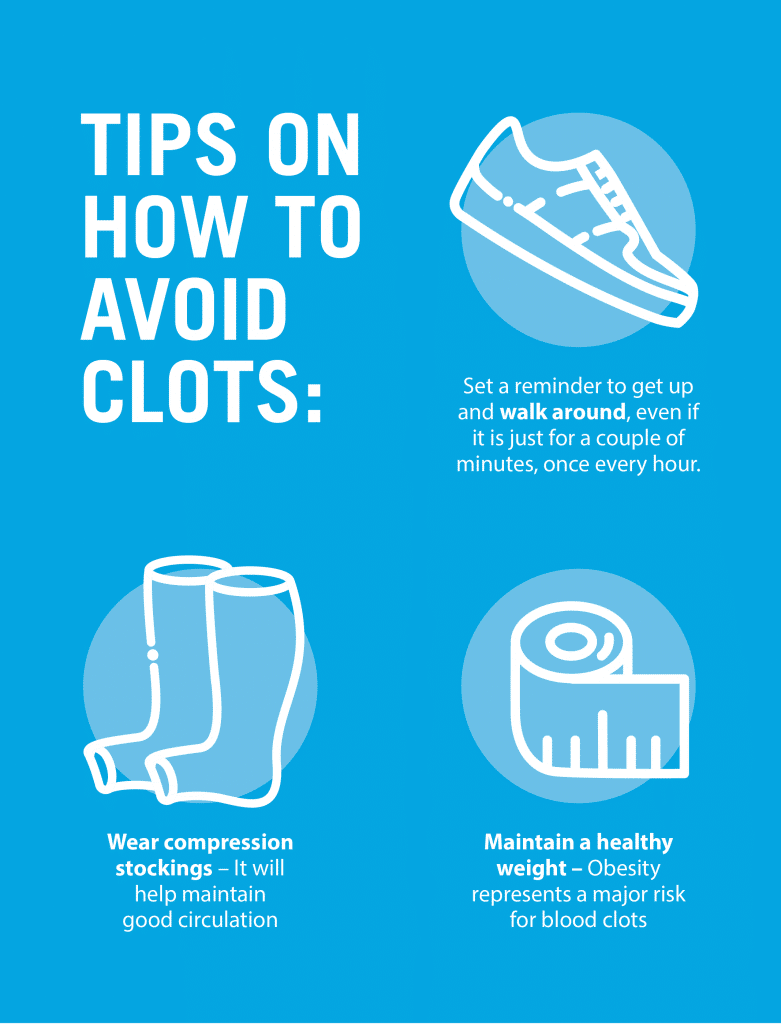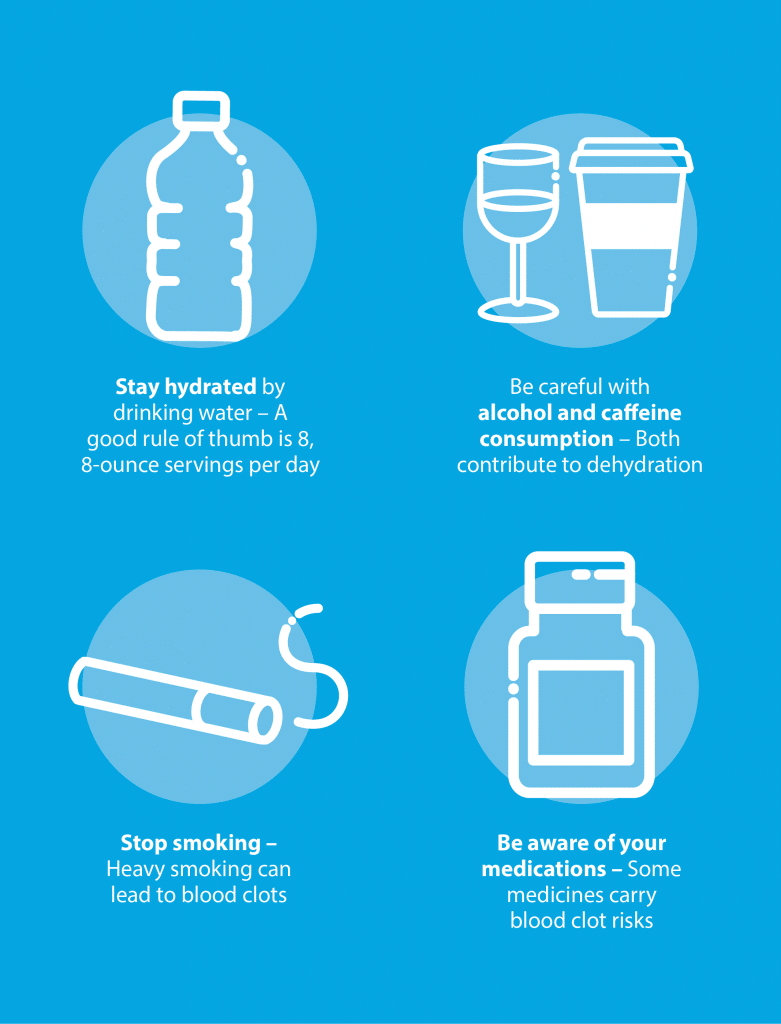We know that the safest way to avoid the COVID-19 pandemic is by sheltering-in-place and social distancing – but being safe does not mean staying sedentary. In fact, sitting in one place for hours at a time can be detrimental to your health.
That’s because immobility invites the formation of blood clots in our bodies, including Deep Vein Thrombosis (DVT). Unaddressed, DVT could lead to the potentially fatal condition known as a pulmonary embolism, which is what happens when a clot leaves the leg and travels to the lungs.
“When you are stuck inside all day, it sets up a dangerous situation, especially for elderly patients, if they do not stay active,” said board-certified vascular surgeon and vein specialist Charles Moomey Jr., M.D., FACS. “When you are mobile, you engage your calf muscles, and that pushes blood up and through the veins in your legs. When you are not mobile for an extended period then your blood is stagnant; it then begins to thicken and a clot can form.”


DVT is preventable. Here are a few tips.
While DVT occurs most commonly in patients over age 50, it can happen at any age.
If you have a family history of blood clots, suffer a physical trauma (such as a fall in the home), are a cancer treatment patient or are relatively immobile, this puts you in a higher-risk category.
DVT signs/symptoms
Most DVT occurs in the legs, typically in the calves, so the first symptom is usually swelling and pain in the affected limb, ankle and/or foot.
Less common is an upper extremity DVT, or a blood clot in the arm, which will also cause swelling, pain and discoloration in the affected limb.
If you suspect DVT
Call your doctor immediately. Do not delay care, even in this environment of social distancing.
DVT can actually be treated fairly simply, as the body will dissolve the clot on its own. However, you may need blood thinners to prevent the formation of new clots. And an accurate diagnosis may require the use of diagnostic tests such as ultrasound.
Longstreet Clinic Vascular & Vein is here to help – and is an option that may allow you to avoid a trip to the emergency room.
“Our office is still open,” Dr. Moomey said. “A lot of folks think they cannot go to the doctor’s office, but we’re all open and here for you. Just pick up the phone and call us. We can screen you through a video visit to determine if an in-person appointment or ultrasound is necessary. We do offer ultrasound care in our office which can prevent a trip to the hospital. Longstreet Clinic is following CDC guidelines to ensure that if you do need to see us in person it is the safest environment possible.”
“I saw a patient within the last two weeks that had isolated but then sat in a chair all day. They developed DVT in the leg and it moved to their lung. We were able to cure it fairly simply, but it is something patients, especially older patients, must be aware of and take care of immediately.”
If you suspect you may have a blood clot or another vein issue, please call us at 678-207-4000 or fill out our contact form.
